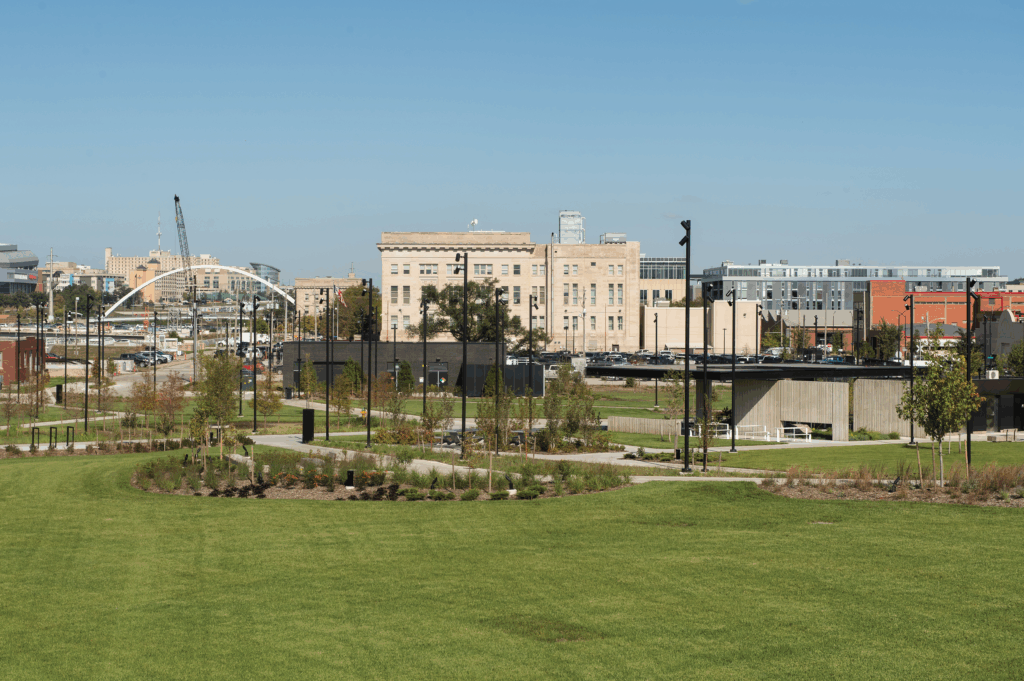Leaders reflect
Why is philanthropy important to our community?

BUSINESS RECORD STAFF Feb 21, 2022 | 9:57 pm
8 min read time
1,954 wordsArts and Culture, Business Record InsiderEditor’s note: In our 2021 Pillars of Philanthropy publication, we asked 10 philanthropy leaders to write about what they’ve learned from these challenging times. What would they have told themselves in December of 2019 that would help prepare them for what was to come in 2020 and 2021? What would they have told themselves about how to lead their teams? How would they have prepared to come up with entirely new programs to continue fulfilling their missions through uncertain times? How would they think differently about advancing equity issues? This is one letter. See the other nine at pillarsbr.com.
From the Pen of: Kristi Knous
president, Community Foundation of Greater Des Moines
Dear Kristi,
You’re someone who thinks ahead and likes to be prepared. Making lists, shopping ahead, buying in bulk, having a freezer full of meals. You take advantage of regular health exams and get your teeth cleaned when you’re supposed to. And at work, you’ve got that disaster plan ready to go and kept in a safe space in your home office. You’re ready for anything, right? Well, my naive friend, you can guess again. Never in your wildest dreams did you imagine you’d have to prepare for a global pandemic. Fasten your seat belt and get ready to rewrite your disaster plan. Here are a few thoughts to help you prepare for what is to come:
Culture counts: While you’ve been diligently making sure you’re ready for the unexpected, there is one thing you’ll find to pay off in spades. Over the years you’ve put intention on building the culture of your team. Strengthening the cultural fabric that weaves you all together and ties you tightly to your mission. You’ve put intention into knowing how your team members like to be appreciated, truly understanding what makes them feel valued. You’ve invested in understanding one another’s strengths and building a strength-focused culture that lifts one another up. You’ve taken time to understand your purpose, and the purpose of each member of your team and, better yet, how purpose collectively brings the Community Foundation’s mission to life. You’ve taken time to understand emotional intelligence, knowing what you bring to the table and how to bring out the best in others by truly listening and seeking to understand. Your team has worked hard over the years not just to succeed, but to thrive. And boy, will that pay off as you all deal with everything the pandemic will throw your way.
And it’s not just the internal culture that counts in times like those that lie ahead. The trusting relationships you’ve built with other community leaders are critical when a crisis hits. You will be able to come around one another so you can mobilize quickly and come around the community. The culture you’ve built as a community is critical as you handle disaster quickly, successfully and with mutual trust, respect and candor.
Trust your teammates: A time of crisis, when every hour counts, is not the time to micromanage. You’ve got an amazing team. Share an inspiring vision, make sure roles are clear and get out of the way. They know what they need to do. They’re experts in their respective roles. Make sure they have what they need and let them get to work. So much more will get accomplished, and likely 10 times better than you’d have done it. Focus where you need to focus and let them do the same. And don’t forget to tell them, show them and remind them how much you value them. They’re all a piece of the puzzle that makes your mission complete.
Seek to understand: You’ll learn that what makes a pandemic different from the flood or tornado recovery efforts the Community Foundation has served in the past is that it affects everyone. No one is given a pass on this one. And no one experiences crisis in the same way. The level of stress is incomparable. People not only are worried about their own health and the health of their loved ones, but they are also isolated, they are worried about their businesses, their employees and their livelihood. By seeking to understand and giving time and space to process and feel heard, you’ll be giving grace and compassion. Your view is not the view of the next person, so don’t make assumptions and listen far more than you speak. Communicate more often, more clearly and more personally than you think you need to. They need it. And they’ll appreciate it.
Take time: You’ll spend more time in front of your computer than you can imagine. There’s this thing called Zoom, and you’ll come to know it well. The meetings and the community needs will seem endless. But you’ll find that if you can break away for a walk, to take a breath, or to listen to music or podcasts, the creativity and ideas will flow. Your brain will need a break. And if you take time away, you’ll be amazed at the ideas, the strategy and the energy that will flow. Be kind to yourself so you can be your best for the community.
And finally, soak in the time you’ll have with your family. Make time to call your loved ones who are isolated. Take advantage of virtual happy hours with friends. Try new recipes. Watch good movies. Exercise. Clean out closets and files. Go hiking. And most importantly, wear your mask and get your vaccine.
You’ll come out on the other side. Changed, and yet the same, but mostly grateful.
Love,
Me
Read letters from nine other nonprofit leaders at pillarsbr.com.
Philanthropy is the love of mankind. Never has that love been more needed, more displayed or more critical. Iowans are generous. We show the love. And our nonprofit sector – make that for-impact sector – needs philanthropic support now more than ever to continue the critical impact they have on our community. As we face the long road of recovery, I can say with confidence that our for-impact sector will be there to lead the way. But they cannot do it alone. Giving back is core to the Iowa culture. As we feel called to help, supporting our nonprofit (for-impact) organizations is a great place to start.
Kristi Knous, president, Community Foundation of Greater Des Moines










